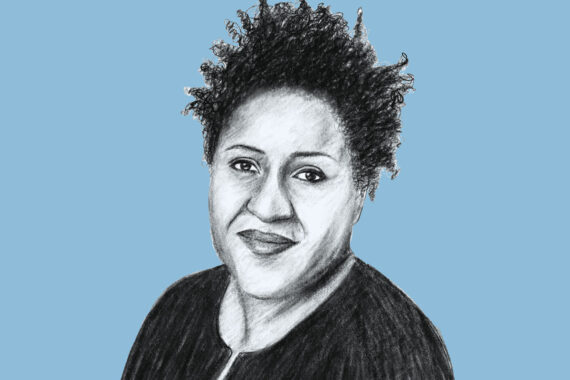Columnist Dr Margaret Ikpoh says systemic racism is stopping us from properly holding people to account
During a recent house clearance, I stumbled across two of my mother’s editorials in a magazine called African Woman from 1975. The first discussed the importance of women in liberation struggles and the struggle for equal opportunities. The second highlighted a biographical sketch titled Unwelcome Colour, which described the harsh experiences of Asian and Afro-Caribbean students, teachers and nurses in the UK, especially when it came to structured racism in the workplace.
Now, almost 50 years later, it’s clear that we are stuck in a racial time warp of same ole same ole. The case of nurse Lucy Letby was simply horrendous and distressing, and the idea floated that it may have occurred differently if she was a person of colour has provoked varying reactions. There will unquestionably be multiple factors that led to the series of events that unfolded at the Countess of Chester Hospital, but the mere fact that even mainstream media struggled to grapple with the ‘angelic’ demeanour of a serial killer spoke volumes, particularly to people of colour.
We already know that Black healthcare professionals are disproportionately more likely to be referred to the fitness-to-practise panels of the General Medical Council or Nursing and Midwifery Council. And the NHS Workforce Race Equality Standard report, published earlier this year, showed BME staff in England continue to be more likely than white staff to enter the formal disciplinary process. The data supports the viewpoint; there is really no need to entertain the prove-it-again brigade.
It’s understandable that Letby’s case has provoked lengthy discussion and debate on several social media platforms. Some have swiftly dismissed the fact that race may have played a part, as quickly as the managers dismissed the whistleblowers. They have even cried ‘woke’, a term which has been hugely weaponised against those who are trying to stay awake and prevent us all from sleep walking into the next tragedy. Others are convinced that based on the data and multitude of cases that preceded this tragedy, things may have been very different if Letby was a person of colour.
Even the president of the Royal College of Nursing Sheila Sobrany warned that Letby would have been stopped sooner ‘if she wasn’t white’. But what we ought to remember is that the reflections of the general population may not necessarily mirror the views and lived experiences of ethnic minorities who make up 50% of hospital and community health services.
Almost 10 years ago, the Freedom to Speak Up report concluded that a ‘failure to speak up costs lives’. Despite this, senior managers remained in a deep slumber, blinded by the halo effect of one individual. Even though concerned clinicians did speak up in the face of alarming evidence, lives were still sadly lost.
Until we can hold all staff – including managers – accountable, afford whistleblowers the protection they deserve, and challenge the racism and conscious bias that still seeps through the organisational fabric of many NHS institutions, more lives will continue to be at risk.
As the president of the Faculty of Public Health Professor Kevin Fenton quite rightly said, ‘structural discrimination and racism is a public health issue, a major public health challenge’. Unless we start to address it, well, we’ll be right back here again and again – perhaps even for the next 50 years.
Dr Margaret Ikpoh is a GP in Holderness, East Yorkshire
Please note, we have disabled comments on this piece due to a number of complaints and some potentially libellous comments. This was a decision taken by the editor. We are currently updating our comments policy, which will be released in the coming weeks
Pulse October survey
Take our July 2025 survey to potentially win £1.000 worth of tokens













